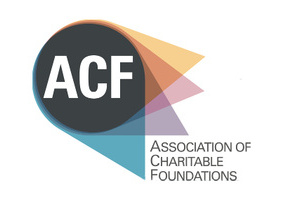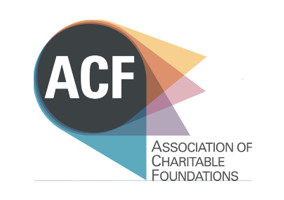The charity sector - particularly the grant-giving sector - finds it hard to share power with people from "minority communities", the chief executive of a major grant giver told an audience of trusts and foundations yesterday.
Bharat Mehta, chief executive of Trust for London, told the Association of Charitable Foundations' annual conference that in almost 20 years he has only met “a handful of people from minority communities” at the "top of the table" in charitable trusts and foundations in the UK.
“Sharing power comes very hard in our sector, particularly in the funding sector," he said. "In the near two decades that I’ve been involved in the grantmaking world, I’ve only encountered a handful of people from minority communities at the top of the table, either in governance terms or in management terms.
“Now that’s two decades, and I’m talking about a handful of people. It’s not changed. So we’re not particularly good at sharing power in terms of race, gender and certainly not class.”
Mehta said that as foundations and trusts try to navigate the changing landscape of the sector and of wider society, they must remember they can also be “forces of change”.
“I think that while we go through this change, and these important discussions, we need to bear in mind that we ourselves can be forces of change. We have the power to do it, we have the ability to do it, we just need to have the will to do it.”
Mehta also said it was a “great sadness” to him that larger charities have not been the ones “taking up issues and bringing them to the national agenda” in the way that many smaller organisations have. Mehta used as an example for this Citizens UK’s Living Wage Campaign, which he said was now “a national phenomenon” and proof that small organisations “have borne fruit”.
Foundations will ‘struggle to respond’ to new technology
Also speaking on the panel, Rhodri Davies, programme leader at the Charities Aid Foundation, said foundations and trusts will likely “struggle to respond” to issues brought on by emerging technologies – such as artificial intelligence and cryptocurrency – in the future, if they do not make the effort “to get to grips” with the issues now.
Davies said that, even if the leadership of foundations and trusts “aren’t concerned with the opportunities” such technologies will likely present, they “might be concerned about the risks” they pose.
“That might be risks to your own organisation in terms of the way that charities and other organisations and charities operate. Or it might be the risks they pose in creating new challenges for your beneficiaries or for society more widely. We’ve already spoken about the role technology plays in widening inequality. Either way, foundations and others will struggle to respond effectively if they haven’t got to grips with these issues themselves.”
Davies said that “one thing foundations will be looking back on in 20 years’ time will probably be asking themselves whether or not they understood and adapted to those changes fully” at the time, or fell behind.
Small charities need foundations to ‘speak up for us’
Also on the panel, Anne Fox, chief executive of criminal justice organisation Clinks, said that small charities need foundations and trusts to “speak up for us and the people we support” more now than ever.
Fox said that various “gagging clauses, anti-advocacy clauses” and lack of time means “the sector once renowned for its ability to speak truth to power no longer has this as its defining quality across the board”.
She said the system currently was “imbalanced” and that foundations must be more willing to “listen critically sometimes” to what charities tell them, and “to ask us the right questions”.
Fox said she was aware this might be seen as “a challenge, or indeed a complete departure from established practice” for some foundations, but said “speaking up and out is not necessarily overt campaigning” and reiterated that foundation and trusts sector is “influential, and the relationships you hold are influential”.
Related Articles












